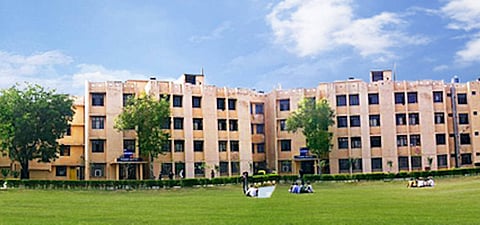Apeejay Education's focus on experiential learning
As the world is evolving around the Covid-19 pandemic, the education system in India is going through a paradigm shift. All educational institutions, especially business and management education institutions, have to deal with these fundamental changes in the kind of education they impart. This is precisely the focus of our approach to business and management education in our institutes.
We are glad our approach to education has found resonance with the National Education Policy (NEP) 2020, which highlights the kind of tenets our educational institutions have been espousing for a long time. With the spotlight in NEP being on industry-oriented professional training and inculcation of an entrepreneur spirit, the Apeejay Education approach not only got vindicated but also proved to be ahead of its times. Apeejay has always strived to let the students imbibe critical thinking and professional skills.
Our management education imparting institutions -- Apeejay School of Management, New Delhi; School of Management Sciences at ASU, Gurugram; Apeejay Institute of Management & Engineering, Technical Campus, Jalandhar; and ACFA, Jalandhar – have all been unique in their approach by offering, a dynamic curriculum, which not only provides industry-oriented learning but also shapes up its students to be resilient enough to excel in a fast changing and unpredictable world.
At all our management institutions, we seek to provide opportunities for developing skills and study different courses from various streams of management & commerce. It equips students with skills and knowledge required to solve real time industry-centric problems in an innovative manner with an entrepreneurial spirit. All Apeejay Stya University departments, including its School of Management Sciences, have been pioneers in offering a dynamic Liberal Arts approach with multi-disciplinary learning, credit-based programme structure and multiple exit options.
Our management education programmes are focussed on experiential learning, with internship opportunities during the programme. Through a combination of hands-on training, seamless industry interface, mentorship by industry captains and focus on a gamut of specialised as well as soft skills, we hone the traits, which can equip our students to conquer the corporate world. We have an excellent track record of placements for our management graduates.
Apeejay Education, heralded by our inspiration and former chairman Stya Paul in 1967, with a vision to provide holistic education, comprises 24 educational institutions at present -- from pre-nursery to doctoral level. The Apeejay Stya family comprises over 40,000 students, 60,000 alumni, and 2,500 faculty. Our Apeejay Stya University is India’s first industry-centric technology & liberal arts university, focussed on research and innovation.
A robust and yet flexible and dynamic regulatory environment is crucial for optimising the standard of management education in the country. While the NEP 2020 is visionary and augurs well for the educational environment in the country, it is relatively silent on the role and scope of private education. The framework is there in the new policy but the issues, which needs to be addressed, has to be in alignment with the NEP vision.
The realm of business education calls for a complete transformation to outcome measurements outside of prescribed input restrictions on such aspects as land area of the institution, number of teachers, etc. For example, in a professional education, which is highly industry focussed, part-time teachers and mentors from industry may be more relevant from an outcome perspective. Rather than the number of teachers/students more importance ought to be placed on prescribed teaching/other engagement mode hours.
We must distinguish between academic education and professional education, especially in case of industry oriented business education. Blended and virtual education, with freedom to tailor programmes/curriculum/specialisations/delivery mode to the needs of the students and the market is here to stay.
Further, PGDM’s offered by AICTE-recognised institutions are anyway equivalent to MBA degrees and maybe so allowed to be granted. Credentials required for the faculty of business education need not be only academic oriented depending on the vision of the management degree/school. Apart from research oriented fields, more relevant would be entrepreneurs/industry professionals, who can teach the much needed skills for the real world of business and enterprise.

